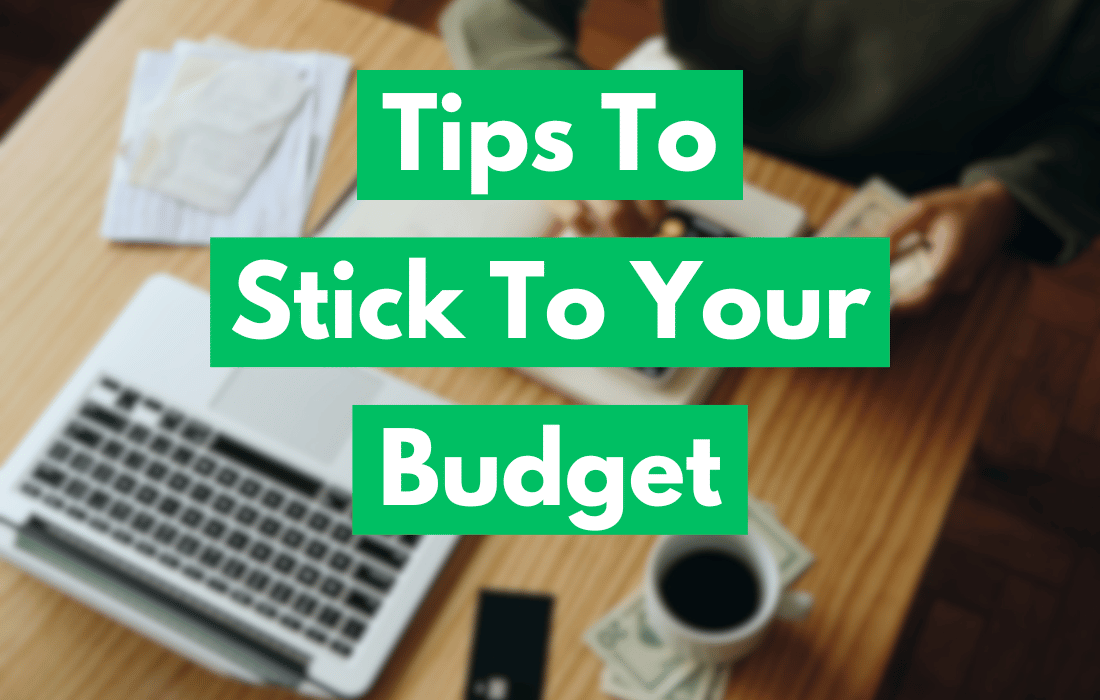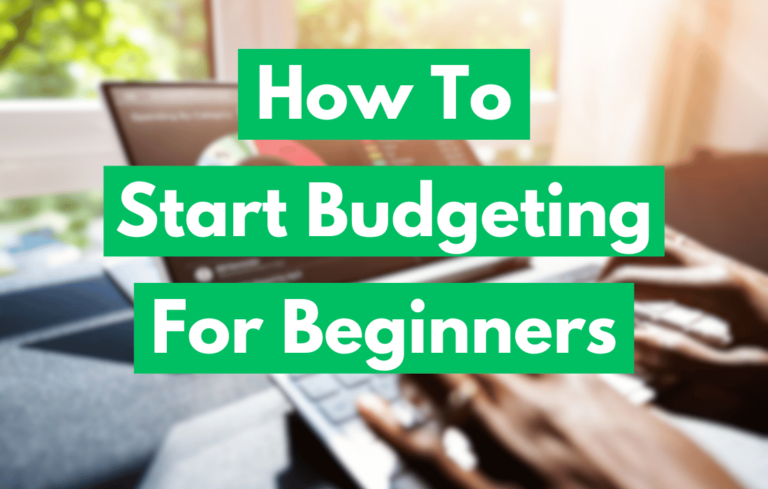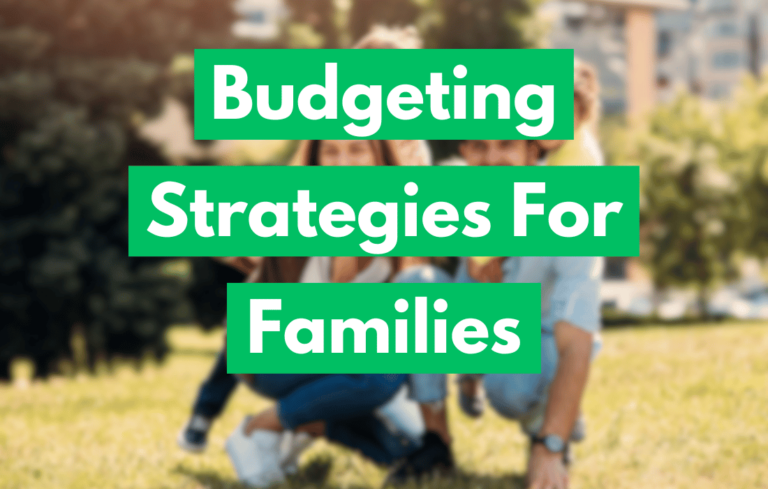Mastering Financial Discipline: Tips to Stick to Your Budget and Save Money

Introduction: The Importance of Sticking to a Monthly Budget
In the realm of personal finance, knowing tips to stick to your budget is akin to possessing the secret sauce of fiscal responsibility. To some, adhering to a budget might appear like a laborious task, but it serves as a roadmap through financial landscapes, guiding you toward your monetary aspirations. Sticking to your budget can prove instrumental in averting potential budgetary pitfalls while ensuring that you remain on track with your financial goals.
The Relevance of a Budget
Why is it important to stick to a budget? The relevance lies primarily in its capacity for fostering conscientious spending habits. A budget’s power stems from its ability to illuminate the fine line between wants and needs, thereby helping you prioritize necessary expenses over discretionary ones. Mastering how to keep a monthly budget promotes frugality and cultivates an awareness of one’s financial wellness.
Setting Realistic Expectations
When creating your budget, implementing realistic expectations is paramount; one common pitfall often encountered by beginner budgeters is setting unattainable monetary constraints. Designing an overly restrictive or unrealistic budget can lead to inevitable failure and frustration. Instead, aim to create a realistic budget that suits your lifestyle and doesn’t completely eliminate all spending on leisurely activities. The key lies in striking an equilibrium between saving money and maintaining quality of life; thus, how do I stick to my budget becomes less about sacrifice and more about strategic planning.
Planning and Adjustments
Careful planning allows for successful adjustments within your living means without drastically impacting day-to-day life. Of course, even the best-laid plans encounter challenges: unexpected expenses emerge as notorious culprits known for derailing carefully designed budgets.
Incorporating Emergency Funds and Modern Tools
Therefore, incorporating emergency funds into your monthly financial strategy is vital insurance against unanticipated costs. Moreover, contemporary advancements have ushered in numerous tracking spending tools designed specifically for maintaining an efficient record of personal expenditures, further simplifying the process of sticking with planned budgets.
Celebrating Achievements
Yet importantly comes celebrating small wins; each accomplishment along this journey deserves acknowledgment as it undeniably plays a part in sustaining motivation levels high – invaluable when working towards long-term goals. Learning how to stick with your monthly budgets becomes less daunting once equipped with tips mentioned above – it’s not about why can’t I stick to my budget rather becoming skilled at managing personal finances leading towards secured future stability.
Understanding Your Income and Expenses: The First Step
The journey towards financial stability often commences with a comprehensive understanding of one’s income and expenses. It is the first step in knowing how to stick to your budget, since it provides a clear picture of your monthly cash flow, which is crucial in making informed financial decisions. There are myriad ways to approach this — you could use pen and paper, a spreadsheet, or even a financial app.
Consistency in Tracking
Whichever method you select, the key is consistency. Keep accurate records of all your income sources, including your salary, dividends from investments or returns from side hustles. Remember that every penny counts when it comes to creating a realistic budget. Continuing on the path of understanding your financial situation involves scrutinising all outflows — categorically dissecting each expense incurred throughout the month.
The Power of Spending Tools and Goal Setting
This serves as an eye-opener for many as they realise where their money goes — sometimes towards unnecessary or impulsive purchases. Tracking spending tools come handy here — they help you keep a close eye on where every dollar is spent and also provide actionable insights into how you can save more by cutting down on non-essential expenditures. Setting clear financial goals forms another cornerstone in the edifice of effective budgeting. It’s essential that these goals are SMART – Specific, Measurable, Achievable, Relevant and Time-bound – whether they pertain to short-term objectives like saving for vacation or long-term aims such as retirement planning.
Celebrating Budgeting Wins and Adjustments
The process of goal setting acts as an intrinsic motivator assisting you in adhering strictly to your budget plan because every dollar saved gets you closer to achieving these ambitions. Staying true to these ambitions can be a daunting task considering our innate propensity to fall back into old spending habits but celebrating budgeting wins helps overcome this hurdle significantly. This doesn’t essentially mean splurging money but rather recognizing and rewarding ourselves for sticking diligently to our budget plan every month, thereby reinforcing positive behavior and encouraging us towards sustainable fiscal discipline.
Adapting to Life’s Curveballs
Yet importantly, we delve into adjusting budgets because life doesn’t always go according to our plans, so why should our budgets? There might occur unexpected expenses throwing us off balance and leading us to question, “why can’t I stick to my budget” But rest assured, it’s normal. It signifies that it’s time for some adjustments based on new lifestyle changes or unforeseen expenditures reflecting practicality over stringent adherence. However, while making these adjustments, relatively common budgeting pitfalls need to be avoided, such as not accounting for irregular expenses like car repair costs or annual insurance payments, which could create major setbacks if not planned proactively hence requiring the establishment of emergency funds in the realm of effective budgeting acting like safety nets during times unforeseen financial crises providing us much needed fiscal resilience thus reinforcing importance sticking onto budgets being lifelines guiding us through tumultuous waves economic instability with unwavering equanimity.
Setting Clear Financial Goals: Why It Matters
Understanding the importance of setting clear financial goals is one of the most crucial steps to creating a realistic budget. When we talk about financial goals, it could be anything from saving for retirement, an upcoming vacation, a home, or even paying off debts.
The Motivational Power of Financial Targets
Having these targets not only provides direction but also fuels motivation for sticking to your monthly budget. Financial objectives serve as tangible checkpoints on your journey towards overall fiscal stability. They provide something to work towards and give a sense of purpose to all your budgeting efforts. It’s all about knowing what you’re saving for and realigning your expenditures accordingly to meet those objectives.
Small Wins and Their Impact
Moreover, these goals need not be monumental or daunting. Even small wins must be celebrated as each goal achieved brings you closer to financial freedom and encourages you on how to stick to a budget and save money effectively.
Avoiding Pitfalls and Adjusting Budgets
Thus, setting financial goals provides an overall structure to your monetary inflows and outflows while also keeping you motivated throughout the journey. Furthermore, setting clear financial objectives helps avoid common budgeting pitfalls often associated with random or impulsive spending decisions. When there are specific goals in place, every dollar spent outside those parameters seems like a step away from achieving them. This practice plays a pivotal role in adjusting your budget over time since it takes into account changes in income or lifestyle changes that might affect how you spend money each month.
The Role of Emergency Funds
Yet importantly, having distinct financial aims encourages emergency funds in budgeting—a safety net often overlooked but invaluable during times of unexpected expenses or income loss scenarios. Setting tangible fiscal targets is central for those wondering why they can’t stick their budgets—it provides a sense of purpose & ownership towards one’s expenditure choices while actively discouraging reckless spending habits, thereby underscoring just why it’s essential to know how best to stick one’s monthly finances.
Creating a Realistic Monthly Budget: Tips and Tricks
Embarking on the journey of creating a realistic budget can seem daunting. Yet, it’s essential to financial stability and achieving your monetary goals.
Understanding Your Current Financial Situation
The first tip to stick to your monthly budget is to understand your current financial situation. One cannot plan for the future without a clear picture of where they stand in the present. Make a list of all your income sources and expenses, even those that may seem insignificant; every penny counts when you’re budgeting.
Setting and Incorporating Financial Goals
The second tip is setting financial goals. Do you wish to buy a house, start a business, or perhaps retire early? Each goal requires planning and dedication over time. By incorporating these goals into your budget, you can visualize how sticking to it will lead you closer each day to achieving them.
Allocating Funds and the Importance of Emergency Savings
Creating a realistic budget isn’t about restricting yourself but rather about making informed decisions with what you have. Allocating funds for specific things – rent/mortgage, groceries, bills- ensures that necessities are covered. Incorporating an emergency fund in your budget is also instrumental. It’s a survival instinct to overlook saving for hypothetical situations when there are immediate needs at hand. However, life throws curveballs from time to time; having an emergency fund ensures that such unforeseen circumstances don’t derail your entire financial plan.
Adjustments, Tracking, and Celebrating Wins
While crafting, the perfect monthly budget might require some adjustments along the way – remember that it’s okay not to get everything right immediately – staying dedicated is crucial because consistency breeds success over time. Understanding how tracking spending tools work can also be immensely beneficial as they provide real-time insight into spending patterns and behaviors – allowing for timely modifications before habits become entrenched. Sometimes, it might feel challenging or even impossible to wonder, “how do I stick to my budget?” Here’s where celebrating small wins comes in handy—a system of rewards or appreciation for sticking by the plan helps maintain motivation long enough until discipline takes over. Yet significantly important – recognize that setbacks are part of the journey but don’t equate them with failure; rather, consider them as opportunities for learning how better to stick with this valuable practice in subsequent periods.
Tracking Your Spending: Tools and Techniques
Tracking your spending is an integral part of sticking to your budget. It not only helps you understand where your money is going but also uncovers hidden spending patterns that might be derailing your financial goals.
Benefits of Awareness and Real-time Adjustments
This level of awareness can help you make smarter decisions about allocating your resources going forward, thereby aiding in creating a realistic budget. Moreover, tracking expenses ensures that you are not exceeding your allocated amounts, and if so, it provides an opportunity for adjusting your budget.
Digital Tools: The Modern Approach
Among the myriad tools available for tracking spending, budgeting apps stand as a convenient and efficient option. These digital tools can sync with your bank accounts and credit cards, providing real-time updates on where you’re spending money. They categorize expenses automatically, allowing you to see exactly how much you’re spending on groceries or entertainment each month. They even provide alerts when you are close to exhausting your allocated funds for a particular category, helping avoid potential budgeting pitfalls.
The Traditional Method: Keeping Receipts
However, remember these applications are just tools; their effectiveness lies in how diligently they are used. Consistency is key when it comes to tracking expenditures, just as it is in any endeavor aimed at achieving financial stability. In addition to digital applications, an old-school approach still holds relevance today: the method of keeping receipts. It might seem archaic or tedious compared to high-tech solutions, but going through each receipt can help uncover any habits causing the question, “why can’t I stick to my budget?”.
The Journey of Fiscal Discipline
Whether employed separately or together with modern techniques like finance apps, this manual method remains effective in recording every penny spent. These tips for sticking to a budget: While setting financial goals is paramount and maintaining emergency funds in budgeting invaluable – observing and analyzing where every dollar goes through consistent tracking presents its own merits in this process of fiscal discipline. Remember also that learning how to stick to a monthly budget often involves trial-and-error so don’t get disheartened by initial missteps but consider them opportunities for improvement. Whether it means adjusting budgets or celebrating small wins like resisting unnecessary purchases – every effort counts towards eventual success.
Adjusting Your Budget: When and How to Do It
In the journey of financial planning, adjusting one’s budget is an inevitable part of the process. It is indispensable to understand when and how to make these adjustments, as this knowledge not only aids in keeping our financial health robust but also facilitates our progress towards setting financial goals.
Identifying the Need for Adjustments
Adjustments to your budget should ideally be made when you notice a consistent trend of overspending or underspending in certain categories. For instance, if you find yourself consistently going overboard on dining out but spending less on groceries than you anticipated, it might be time to reassess.
Reviewing and Fine-Tuning Your Budget
To adjust your budget effectively, start by reviewing your tracking data. Having access to tracking spending tools can significantly streamline this process. Reviewing your expenses will help you identify patterns and understand which areas need more or less allocation. Effective adjustment involves not just slashing costs arbitrarily but making thoughtful decisions based on your lifestyle and preferences.
Understanding Adjustments as a Positive Step
It’s important to note that adjusting a budget isn’t a sign of failure; rather, it’s an integral part of creating a realistic budget that works for you in the long term. Think of it as fine-tuning: you’re simply calibrating your predictions to align better with reality. This reevaluation helps avoid common pitfalls such as setting unrealistic expectations or forgetting to account for infrequent expenses.
Embracing Change and Celebrating Wins
Frequently reassessing one’s finances is vital in understanding how to stick to a monthly budget effectively since personal circumstances often change over time – resulting in fluctuating income and expenditure levels. When these changes occur – perhaps due to job transitions or life events – it becomes necessary again for adjustments so as not only maintaining balance within one’s current spending but also preparing for future savings. Emergency funds in budgeting play an invaluable role in providing financial stability during unanticipated situations. Remember the importance of celebrating small wins along the way—a key aspect boosting morale while navigating through this fiscal journey toward achieving overall objectives.
The Role of Emergency Funds in Budgeting
In the complex world of personal finance, the role of emergency funds in budgeting cannot be overstated. At the heart of any strategy on how to stick to your monthly budget, emergency funds provide a safety net that protects against unexpected expenses.
Flexibility and Financial Security
This financial buffer is vital in creating a realistic budget because it adds needed flexibility. When life throws curveballs – in forms such as sudden illness, job loss, or unexpected major expenses – having an emergency fund can prevent you from resorting to debt or breaking your monthly budget. Moreover, incorporating an element for emergency funds in budgeting helps promote a sense of financial security and discipline. It is not just about setting financial goals but also preparing for unforeseen circumstances that could derail those plans.
Adjusting to Life’s Changes
So when you’re thinking about tips to stick to your budget, consider setting aside a portion of your income each month into an emergency fund. Learning how to stick to a budget and save money becomes significantly easier once these provisions are made. When discussing tips for sticking to a budget, one must not discount the importance of adjusting your budget according to life’s vicissitudes. Life isn’t static – neither should your spending plan be.
Addressing Common Pitfalls and Celebrating Wins
Unpredicted changes can influence income and expenses; adjustments need considering these shifts ensure you’re always working with up-to-date information. Equally significant is understanding why some find it challenging to stick with their monetary plan; “why can’t I stick to my budget?” is asked frequently enough that addressing it becomes paramount in discussions about personal finance management. Often pitfalls come from unrealistic expectations or failing to account for all types of expenditure including recreational activities – avoid these errors by incorporating every aspect into the planning stages. The journey towards maintaining long-term fiscal health may seem daunting initially; however, celebrating small milestones and wins along this path provides necessary motivation and validation.
Avoiding Common Budgeting Pitfalls
Embarking on the journey of budgeting can often feel like navigating a labyrinth laden with pitfalls and traps.
The Unexpected Expenses Challenge
One of the most common mistakes many individuals make in their quest to stick to their monthly budget is failing to account for unexpected expenses or life’s inevitable surprises – car repairs, medical bills, and sudden trips. These unforeseen expenditures can wreak havoc on a carefully planned budget if not prepared adequately. The concept of emergency funds in budgeting becomes crucial in such scenarios. An emergency fund acts as a financial buffer, ensuring that these irregular yet unavoidable expenses do not derail our overall financial plan.
Adapting and Adjusting Your Budget
Another common pitfall people succumb to is not adjusting their budget when needed. A detailed and realistic monthly budget is not a rigid structure; it’s rather an evolving guideline that should adapt according to changes in your financial status or lifestyle. If you get a raise or witness an increase in living costs, adjust your budget correspondingly. Consider employing tracking spending tools as part of this adaptive process. These tools can provide valuable insights into where your money is going and highlight areas where adjustments may be necessary.
Celebrating Small Wins and Overcoming Deprivation
Furthermore, they also allow you to visualize your progress toward achieving your financial goals, which can be both motivating and rewarding. Yet another pitfall that often leads individuals away from adhering to their budgets is the perceived notion of deprivation – the idea that sticking to a budget means giving up everything enjoyable or desirable. It’s essential here to celebrate small wins along your journey; every time you succeed in adhering to your monthly plan or achieve a saving goal – celebrate it!
Patience and Persistence
Remember that learning how to stick effectively within an allocated limit requires patience and practice—it’s not something many people master overnight. The key lies in creating realistic expectations, and setting clear financial goals while avoiding common mistakes along the way—a series of small steps leading towards considerable long-term benefits.
Staying Motivated: Celebrating Small Wins
Among the myriad challenges that seem to shroud the terrain of financial planning, one question echoes persistently: “Why can’t I stick to my budget?” Often, a lack of motivation is the crux of the conundrum.
The Power of Small Victories
Staying motivated in your budgeting journey isn’t always easy; it requires patience, discipline, and a positive outlook. One effective strategy in maintaining this motivation is celebrating small wins. Celebrating small victories can transform what often seems like a mundane routine into an enjoyable process with tangible rewards. With each accomplishment along your budgeting journey – no matter how minor it may seem – you’re not just inching closer to your ultimate financial goal but also cultivating a positive relationship with money management.
Setting Realistic Financial Goals
Consider this: maybe you resisted an impulsive purchase or perhaps you successfully managed to put aside some savings for three consecutive months – these are accomplishments worth acknowledging and celebrating. Another crucial aspect many individuals overlook when pondering on how to stick to their monthly budgets is creating a realistic budget in the first place. Dreams of hefty savings are certainly tempting, but while setting financial goals, ensure they align with practicality.
Embracing Tools and Adjustments
Tracking spending is another key factor that shouldn’t be underestimated when considering tips for sticking to your monthly budget. A myriad of tools and apps are available today that eliminate guesswork from tracking expenses, thereby enhancing accuracy and convenience in managing finances. Adjusting your plan based on changing circumstances forms part of avoiding common budgeting pitfalls.
The Safety Net: Emergency Funds
And while on this subject, remember that emergency funds in budgeting also play an indispensable role – they form a cushion against unforeseen events that could otherwise derail even well-planned budgets. Sticking steadfastly onto our monetary plan paves ways not only towards fulfilling our immediate goals but also fosters habits aiding us in future endeavors, too – be it buying a home or planning retirement funds; consistency indeed pays off!
Conclusion: The Long-term Benefits of Consistent Budgeting
Mastering the art of how to stick to a budget and save money can have profound long-term benefits.
Achieving Financial Stability
The most immediate is undoubtedly financial stability. By adhering to a budget, you can ensure that your income covers your expenses and that surplus funds go towards savings or debt repayment. This foresight wards off the stress of unanticipated costs and lending deficits. Moreover, consistent budgeting assists in the cultivation of monetary discipline, which will serve one well throughout life’s various stages.
Creating and Adjusting a Realistic Budget
Tips to stick to your budget often revolve around creating a realistic budget. This process involves setting financial goals that are within your reach, adjusting the set parameters when necessary, and tracking spending habits with modern tools designed for this exact purpose. It may seem overwhelming at first, but as you grow accustomed to these practices, they become second nature. But why do many people ask: “why can’t I stick to my budget?” The answer often lies in a lack of flexibility or realism in their initial planning.
The Importance of Tracking and Flexibility
Therefore, adjusting your budget becomes an essential part of maintaining it effectively over time. Life is unpredictable – expenses can rise or fall, and incomes can fluctuate. A flexible budget acknowledges these realities and adjusts accordingly to keep finances balanced. Tracking spending is another crucial aspect of sticking to a monthly budget – whether using traditional methods like keeping receipts or leveraging digital tools available today for real-time monitoring of expenditures.
Setting Goals and Preparing for the Unexpected
These resources help keep our financial behaviors transparent and accountable, eliminating chances for impulse spending, which could derail our fiscal train. Setting financial goals serves as the compass guiding our fiscal journey; celebrating small wins along this path boosts morale and keeps motivation high in sticking with our plans while avoiding common pitfalls associated with discouragement or unrealistic expectations. One cannot discuss tips for sticking to a monthly budget without mentioning emergency funds in budgeting – arguably one of its most significant aspects that prepare us against unforeseen circumstances without disrupting our regular monetary flow.
The Compound Benefits of Consistency
When pondering “how do I stick to my budget,” remember consistency is key – both in saving money and reaping the rewards offered by systematic stewardship over personal finances. So why is it important to stick to a monthly plan? All these combined efforts lead not only toward immediate benefits but also compound over time into sizable advantages such as wealth accumulation and peace of mind knowing we are equipped for whatever life throws at us financially.



